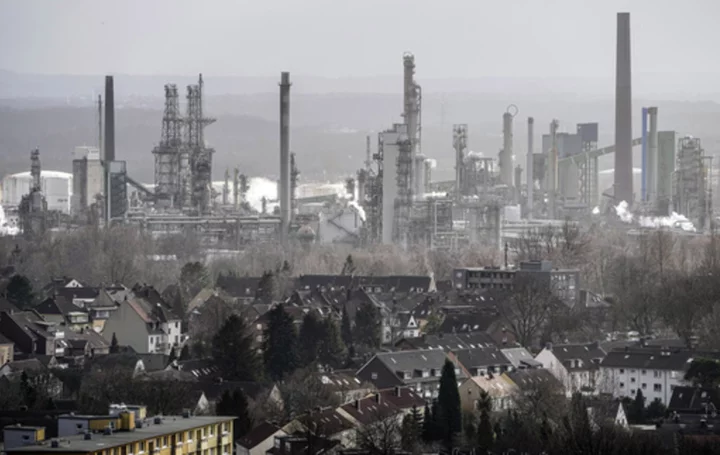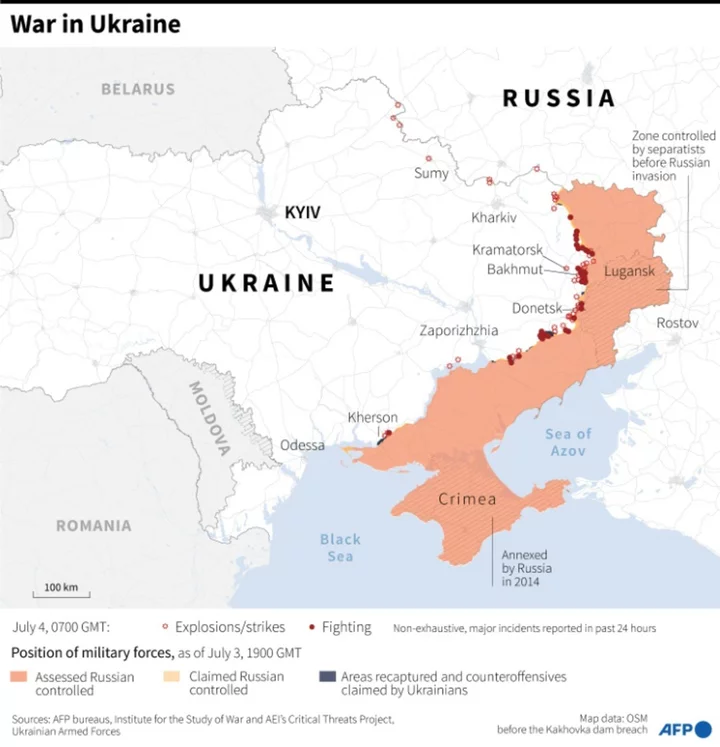LONDON (AP) — The European economy contracted slightly at the end of last year and beginning of 2023, revised figures showed Thursday, underlining the impact of the loss of Russian natural gas and high inflation on consumer spending.
The economic growth figure for the 20 countries that use the euro currency was revised down from zero to minus 0.1% for the fourth quarter of 2022. The number for the first three months of this year also was downgraded from scant 0.1% growth to minus 0.1%.
That means the eurozone endured two consecutive quarters of declining output, which is one definition of recession often used in political and economic discussions, dubbed a “technical” recession.
However, the economists on a panel that declares eurozone recessions use a broader set of data, including unemployment figures. European labor markets have held up relatively well to recent economic shocks. Unemployment is at its lowest level since before the creation of the euro in 1999, hitting 6.5% in April.
The small shift in numbers doesn’t change what households already were experiencing: rising prices at the grocery store, paying more interest on their mortgages and struggling for wages that keep up with the rising cost of living.
The last update from the euro area business cycle dating committee, which was released March 27 and only dealt with data through the end of last year, said there had been “no recession” as falling consumer spending was statistically offset by a large reduction in imports.
The committee added that “the output growth pause contrasts with a continued, robust expansion in employment” and that it would “continue monitoring and commenting on developments.”
Recent figures from Germany show Europe's biggest economy unexpectedly shrank in the first three months of this year, marking its second quarter of contraction. It was one of the countries most reliant on Russian natural gas.
An energy crisis engulfed Europe after its support for war-torn Ukraine led Russia to cut off most of its natural gas, which the continent relied on heavily to generate electricity, power factories and heat homes.
That fueled sharply higher energy bills for consumers and businesses, spiked inflation to record levels, and raised fears of rationing and blackouts. Governments and utilities scrambled to line up alternative supplies of liquefied natural gas shipped in from countries like the U.S. and Qatar, avoiding the disastrous utility shutoffs that had been feared last year.
Energy prices have since fallen to levels seen before Russia invaded Ukraine, but persistent inflation and higher interest rates that the European Central Bank is using to combat price spikes have weighed on economic growth by making credit for house purchases or business expansion more expensive.
The ECB is expected to continue its series of rate increases at its June 15 meeting, with a quarter-point hike, and keep the door open to raise further beyond that.









